May Day: Workers’ Hope Dashed as government delay Minimum Wage Announcement
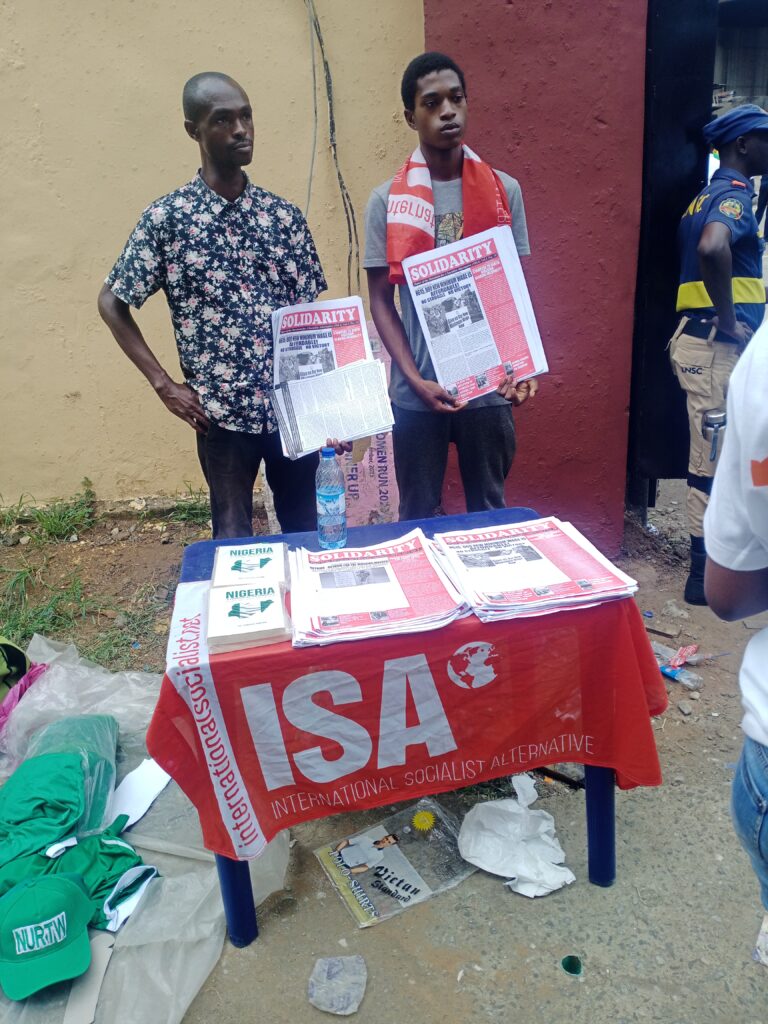
In many centres across the country where May Day events were held, it resembled more of a festive gathering amidst a backdrop of petrol scarcity. This contradiction is particularly striking for a nation that exports crude oil yet relies on imported refined petrol. The persistence of ruling political elites in implementing neoliberal capitalist programs has further worsened the country’s economic woes. Unfortunately, this situation represents a missed opportunity for Nigerian workers to challenge the anti-people policies of the regime.
In numerous states, it was the governors who took centre stage, garnering praise despite their lack of effort to champion the interests of the working class. Take Lagos, for example, where the state government’s endorsement of lecturer layoffs at Lagos State University (LASU) and widespread layoffs at Lagos State water corporations will elicit applause at the Onikan stadium. To illustrate, the master of ceremonies even introduced the governor as the ‘celebrant of the day’.

Among the unions, only members of the Academic Staff Union of Universities (ASUU) brought protest materials like placards to voice their opposition to the LASU layoffs. They chanted solidarity songs and demanded the reinstatement of the sacked lecturers.
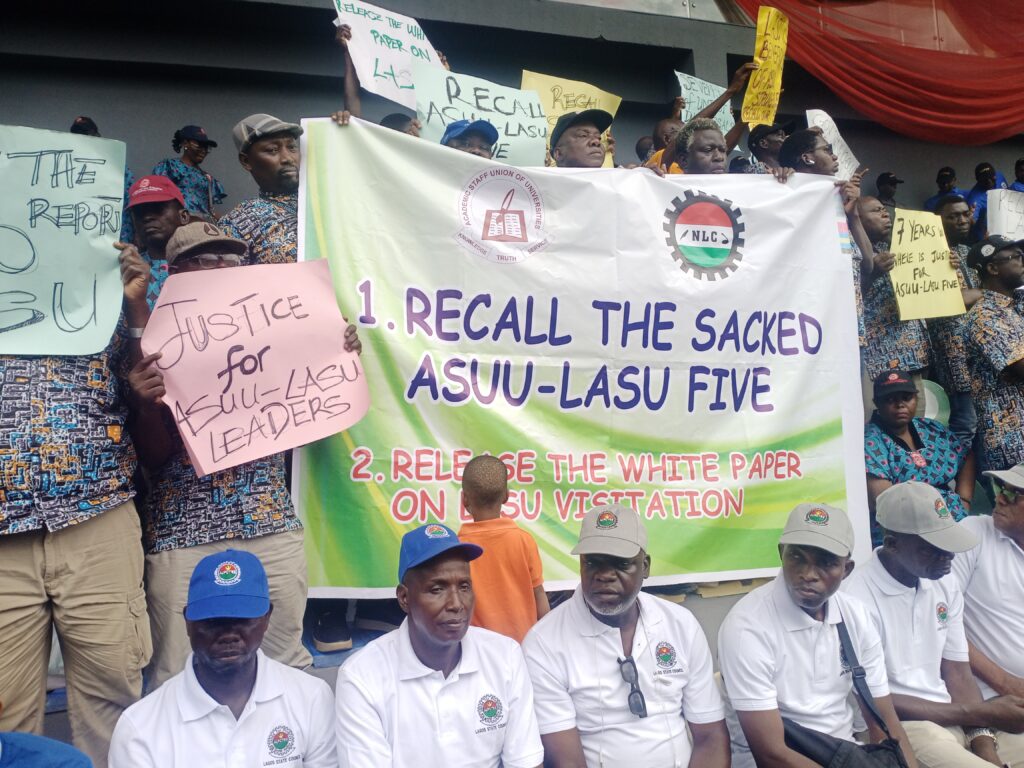
While the minimum wage issue dominated May Day discussions nationwide, workers hoped to hear about a new minimum wage on May 1st. However, their hopes were dashed as the government continually delayed its announcement. Despite promises from the Federal Government, including claims of commencing the new wage from May 1st, the actualization remains elusive. Labour leaders have proposed a N615,000 minimum wage for the country, yet the government is pushing for a mere 35 percent increase from the current N30,000 poverty wage.
Since assuming office in May 2023, the Tinubu government has significantly increased petrol prices by over 300%, electricity by about 300%, tertiary institution fees by over 200%, and inflation from 22.2% to 33.2% in ten months, with food inflation surpassing 40%. Given these challenges, it’s mystifying that the government is considering only a mere 35 percent wage raise.
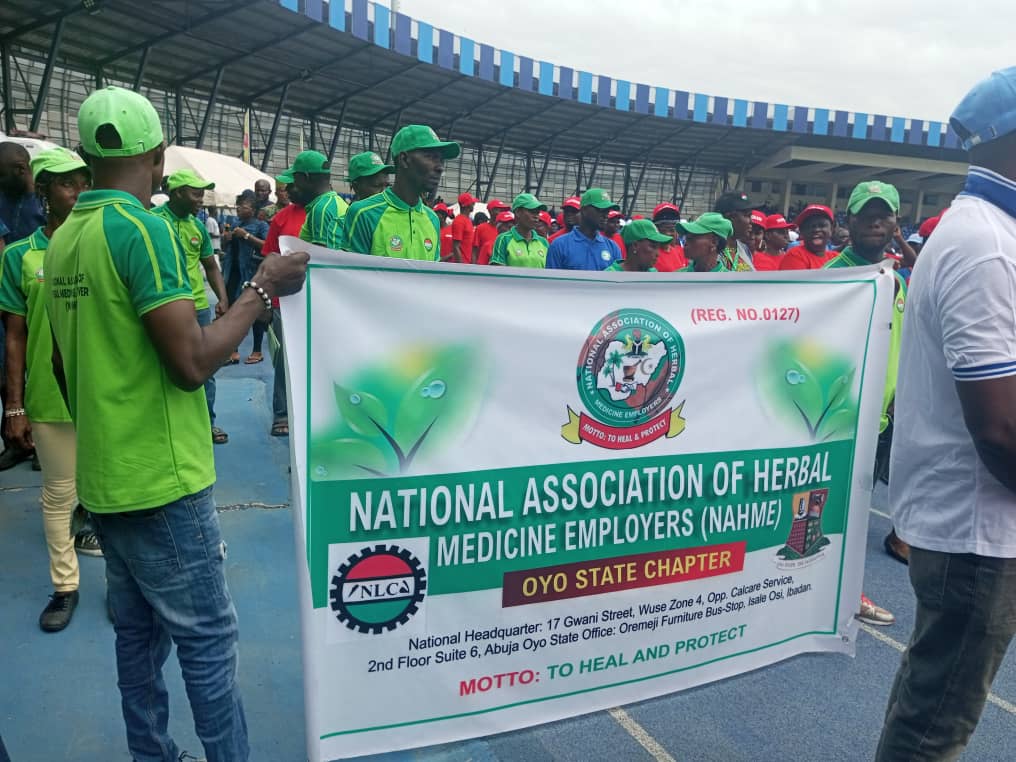
With the current hardships workers endure, this year’s May Day should have been a street protest, mirroring those in many other countries, challenging capitalism, imperialism, and anti-people policies. Capitalism perpetuates inequality and pushes more workers into poverty. Unless this system is overthrown and replaced with a planned socialist economy, placing the economy’s commanding heights under the democratic control of the working people, this crisis will persist. We urge trade unions to reclaim and build the Labour Party with Socialist Programmes for the people’s benefit.
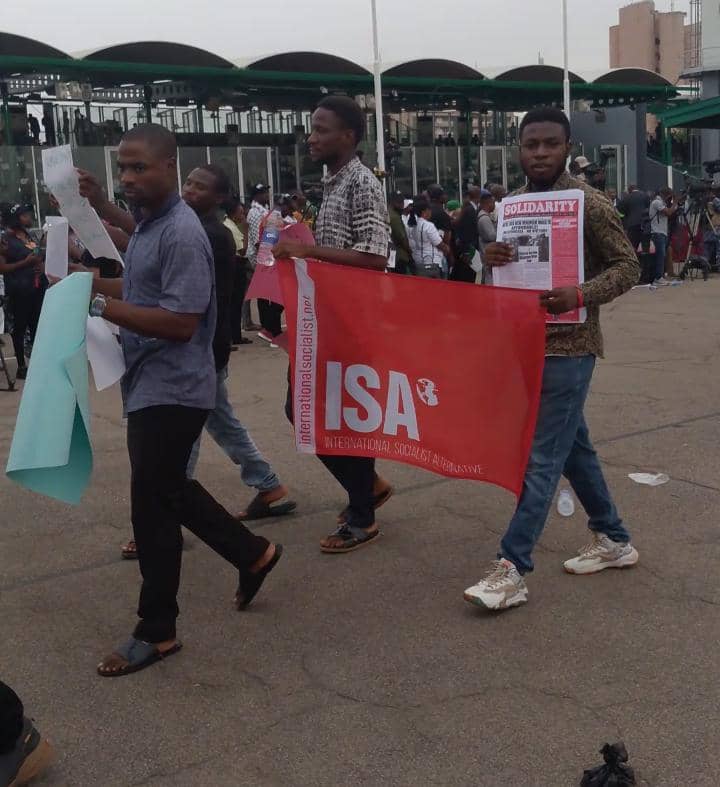
MSA Intervention
The Movement for a Socialist Alternative (MSA) participated in nine states with leaflets and the workers’ paper ‘Solidarity’. Our intervention aimed to campaign against government attacks on workers and push for the implementation of the new minimum wage. It was also an opportunity to remind Labour leaders to mobilize rank-and-file workers to fight for the proposed wage advocated by both the Nigeria Labour Congress (NLC) and the Trade Union Congress (TUC). In Benin, where the state governor raised the minimum wage to N70,000 ahead of the federal government, our comrades intervened, discussing with workers why organizing against government attacks is essential. Often, after wage increment, workers face challenges such as retrenchment, necessitating organized resistance. The warm reception of our materials, with 61 copies of ‘Solidarity’ sold and hundreds of leaflets distributed, indicates workers’ receptiveness.
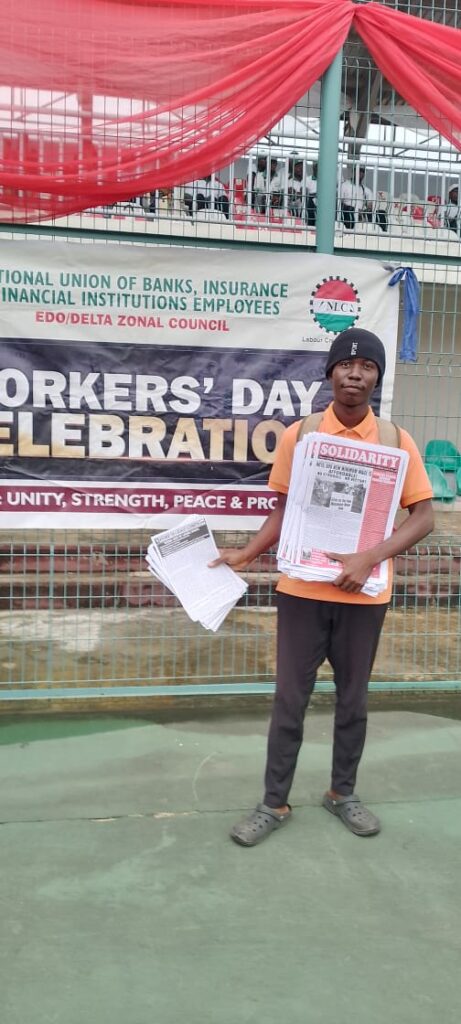
In Abuja, where national trade union leaders were present, our members engaged workers and joined the march with our banner and leaflets, advocating for the N615,000 minimum wage. Over 50 copies of the paper were sold, and hundreds of leaflets circulated.

Similar reports emerged from Oyo, Ogun, Osun, Nasarawa, and Niger states, where despite delays, our comrades interacted with workers effectively, establishing contacts and selling papers. Some workers even requested our members to visit their workplaces with the paper. Remarkably, in Oshogho, three of our newly recruited members independently participated in the May Day event for the first time and established contact with someone who shares our interest in our cause.

In Lagos, despite the rain, our comrades distributed leaflets and papers. ASUU’s struggle was commendable, serving as a significant action for all unions to emulate. We sold 47 copies of our paper and distributed around a thousand leaflets.

Overall, our intervention was significant, with approximately 221 copies of the paper sold and six contacts established.
